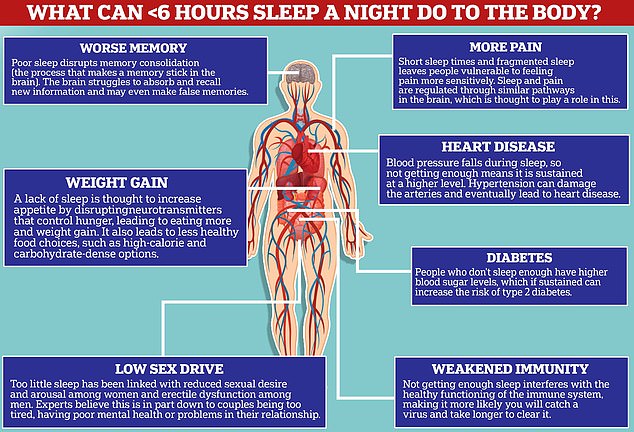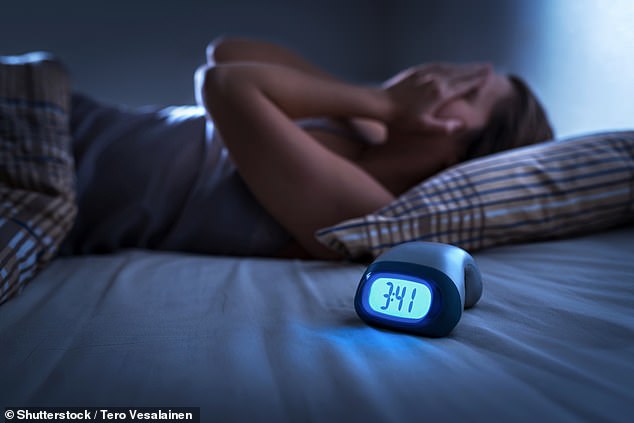It may be best known for causing a dry cough and robbing you of taste and smell.
But Covid can also cause sleepless nights, scientists say.
A new study found that three out of four people with a mild infection suffered from insomnia.
Researchers at Phenikaa University in Vietnam surveyed more than 1,000 Covid patients who, although sick, never became sick enough to be hospitalized.
They were all asked about their sleep patterns after a bout of illness.
Study from Vietnam suggests people infected with Covid may suffer insomnia as a result (file image)
Of the three-quarters who developed insomnia, one in five had a “severe” form.
The results also revealed that 50 percent of Covid patients who reported insomnia woke up more frequently at night.
Furthermore, one in three found it more difficult to sleep well, slept for shorter periods and had difficulty falling asleep in the first place.
The researchers also found that patients with anxiety or depression were more likely to experience insomnia while sick.
Lead author Dr Huong Hoang said that while previous studies had looked at insomnia and hospitalized Covid patients, none examined the impact on sleep of those with minor infections.

Routinely sleeping less than six or seven hours a night destroys your immune system and significantly increases your risk of developing numerous forms of cancer. Even moderate reductions in sleep for just a week can alter your blood sugar so profoundly that you would be classified as prediabetic. Lack of sleep also increases the risk of your coronary arteries becoming blocked and brittle, putting you on the path to cardiovascular disease, stroke, or heart failure. Maybe you’ve noticed that you crave junk food when you’re tired? Too little sleep increases concentrations of a hormone that makes you feel hungry, while suppressing an accompanying hormone that signals food satisfaction.
Compared to those studies, patients with minor infections were more likely to suffer from insomnia than the general population and hospitalized Covid patients, the team said.
This, they said, could be because patients recovering from Covid are more stressed and sensitive to changes in their physical health, leading them to perceive their sleep to be worse.
However, they said more research is needed into the relationship between Covid infections, mental health problems and insomnia.
Dr. Hoang said: “If insomnia does not bother you much, you can take some simple measures, such as taking a hot shower before bed, turning off your phone at least an hour before bedtime, doing 30 minutes of exercise a day, and avoid caffeine after 4 p.m.
‘In case insomnia really bothers you, you can try some sleep aids. If they don’t help, go see a sleep therapist.
She added: “As a sleep researcher, I received many questions and complaints from family, friends and colleagues about their sleep disturbances after recovering from Covid.”
The research, published in the journal Frontiers in public healthIt was based on an online survey of 1,056 Covid patients who had been infected in the last six months.
Dr. Hoang acknowledged that the nature of the survey may have influenced the type of patients who participated, which in turn affected the results.
He added that the time interval between the infection and the time the survey was taken may also have affected the accuracy of patients’ recall of their sleep patterns.

